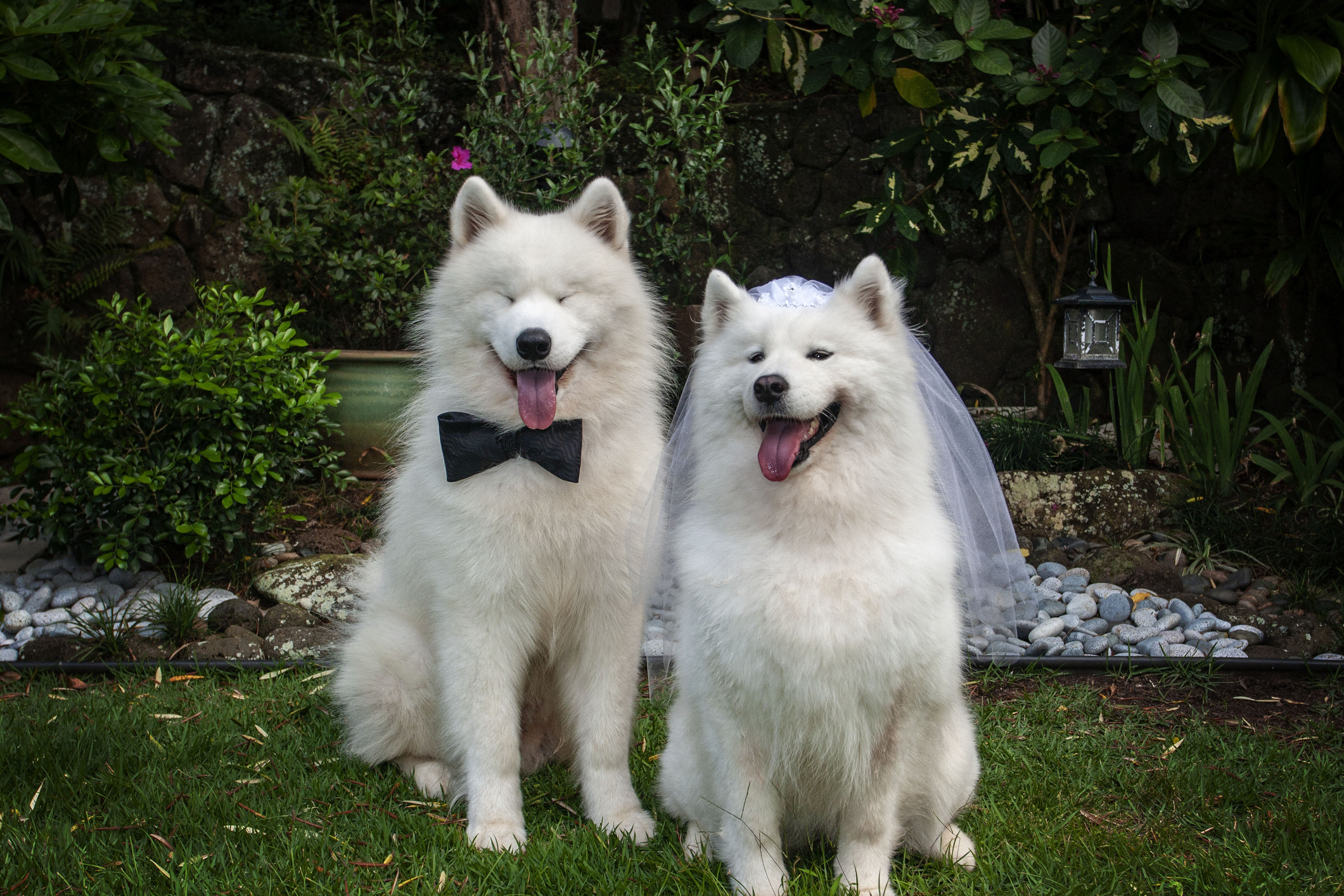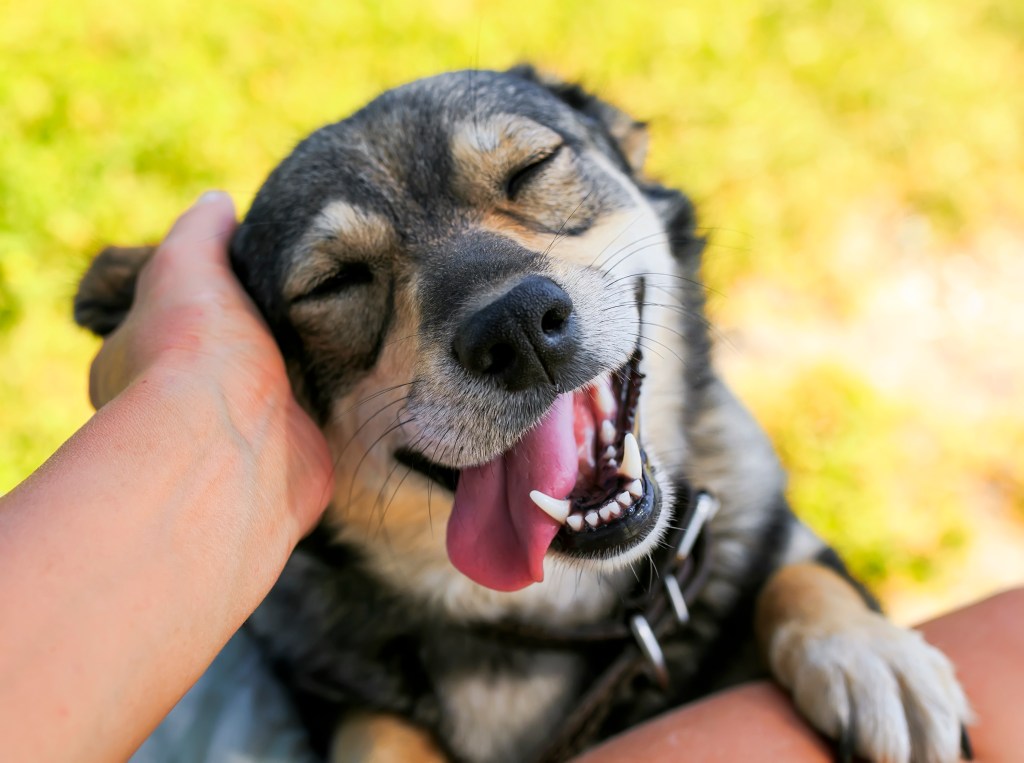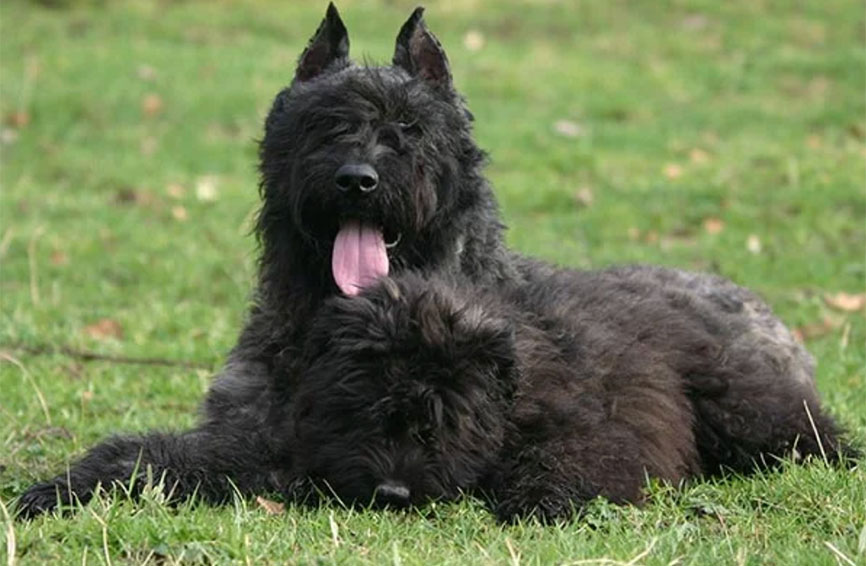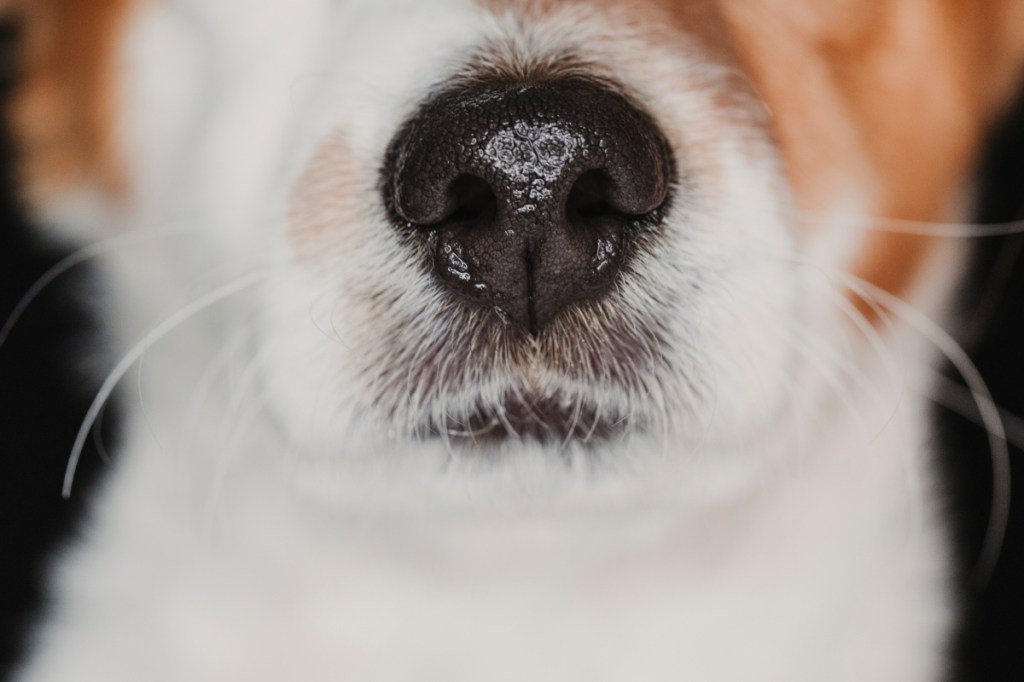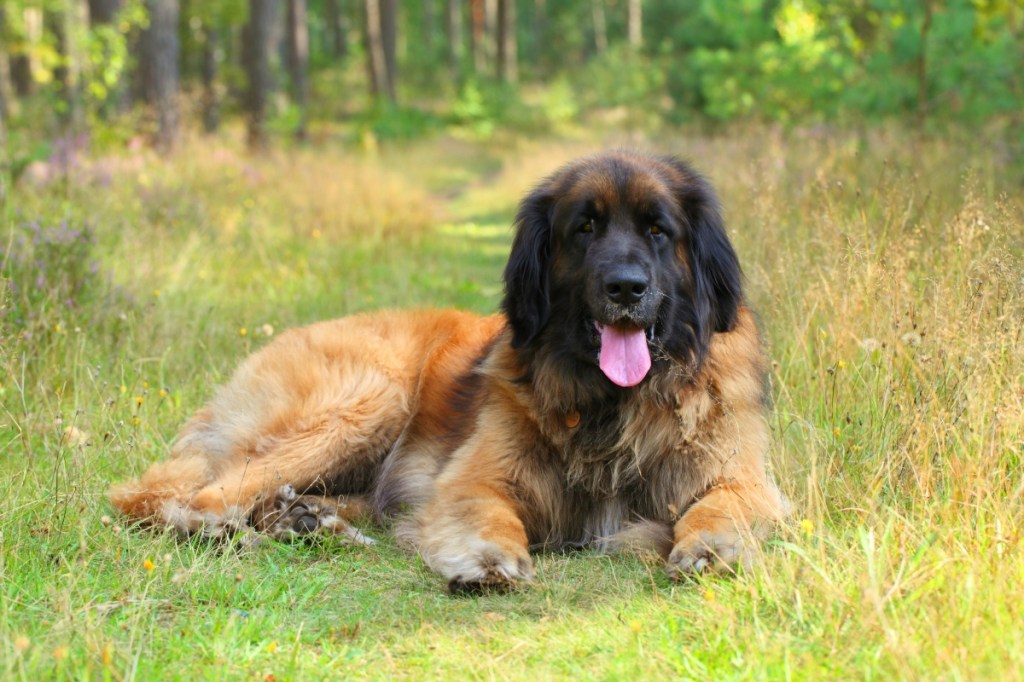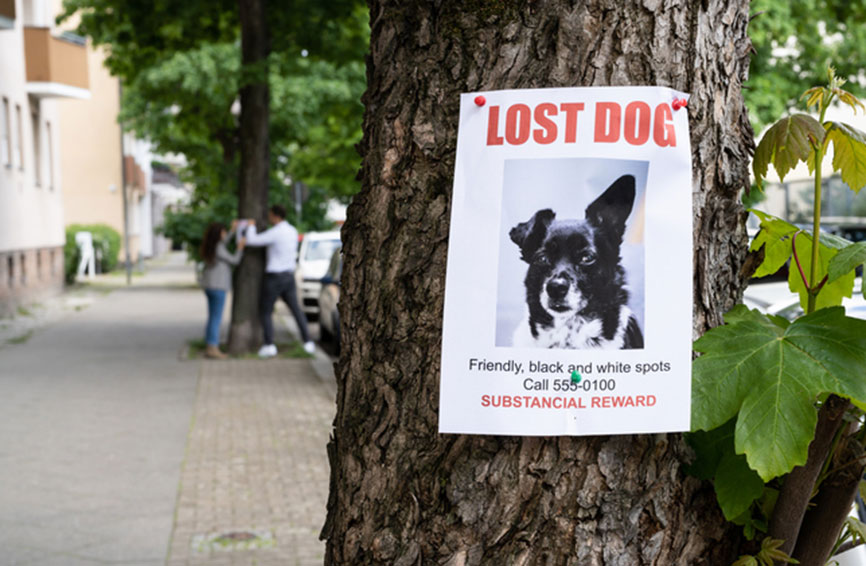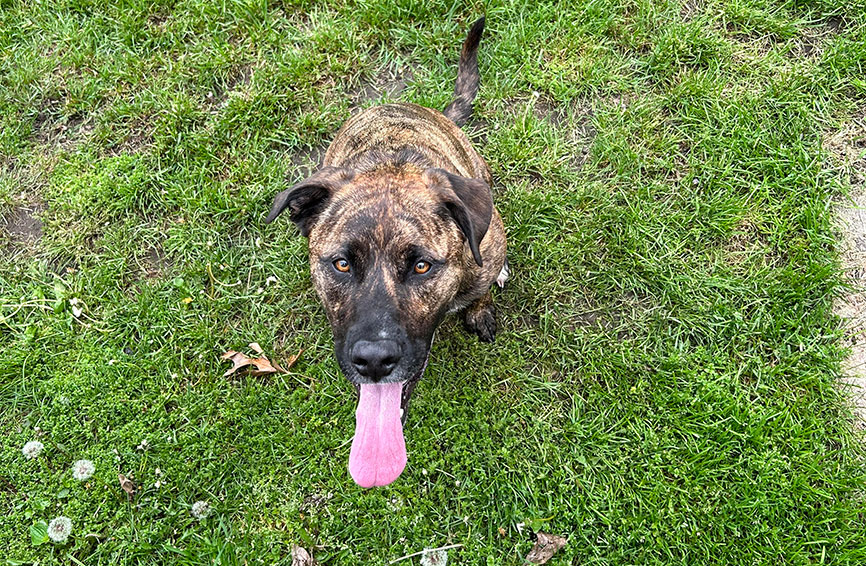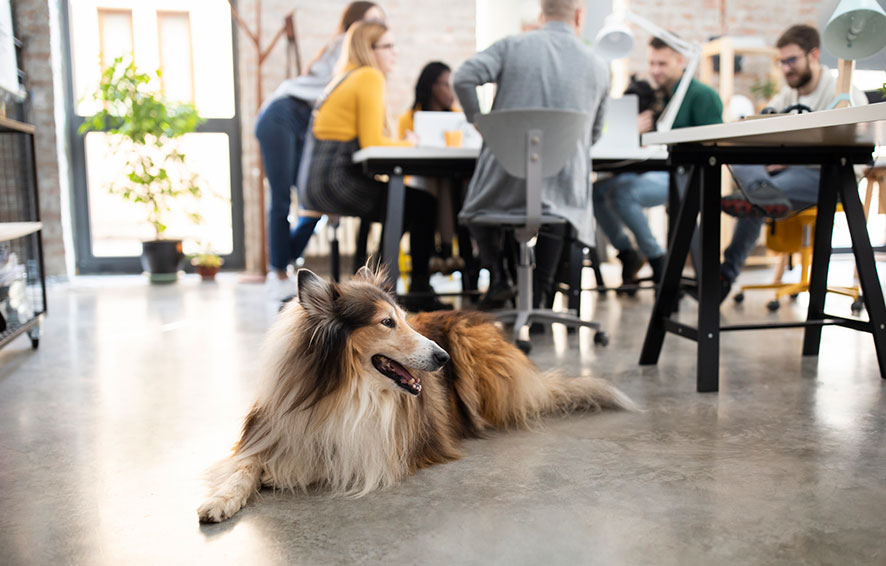Table of Contents
Thanks to Rover and Elisabeth Geier for this guest post. Find her full bio below and keep reading to find out more.
Key Takeaways
- Some experts say that dogs can fall in love in their own way.
- Dogs show affection and demonstrate long-term commitments.
- A dog’s brain will release oxytocin during loving interactions with other dogs and humans.
- Signs of dog love include eye contact, excitement to see you, and wanting to be around you.
We all remember the iconic scene from Lady and the Tramp: over a candlelit dinner at Tony’s Restaurant, Lady and the Tramp stare into each other’s eyes. As they slurp up a shared piece of spaghetti, their muzzles meet in a kiss. But doggy romance is just a cartoon, right? Well, yes and no. Can dogs fall in love? Let’s find out.
Your dog might not take a date out for dinner, but some experts say they can fall in love, in their own way. Read on to learn how dogs might fall in love with each other, with other animals, or with people.
Dog feelings
For humans, understanding dog emotions can be complicated because we simply don’t know how they feel on the inside. It would be a lot easier if they could talk to us! But we do have centuries of experience with dogs, and scientific research, that helps us understand how dog emotions work.
In an interview with National Geographic, animal neuroscientist Dr. Gregory Berns explains that one big difference between human and dog emotions lies in language. Humans have words to label the feelings we experience like fear, sadness, guilt, and love. Dogs don’t have those words. But in his research, using MRI scans of dogs’ brains as they receive positive stimulus, Berns found that “dogs have corresponding parts of their brains to humans.”
Even if their language isn’t the same as ours, dogs do share some version of our emotional experiences.
Defining “love” for dogs
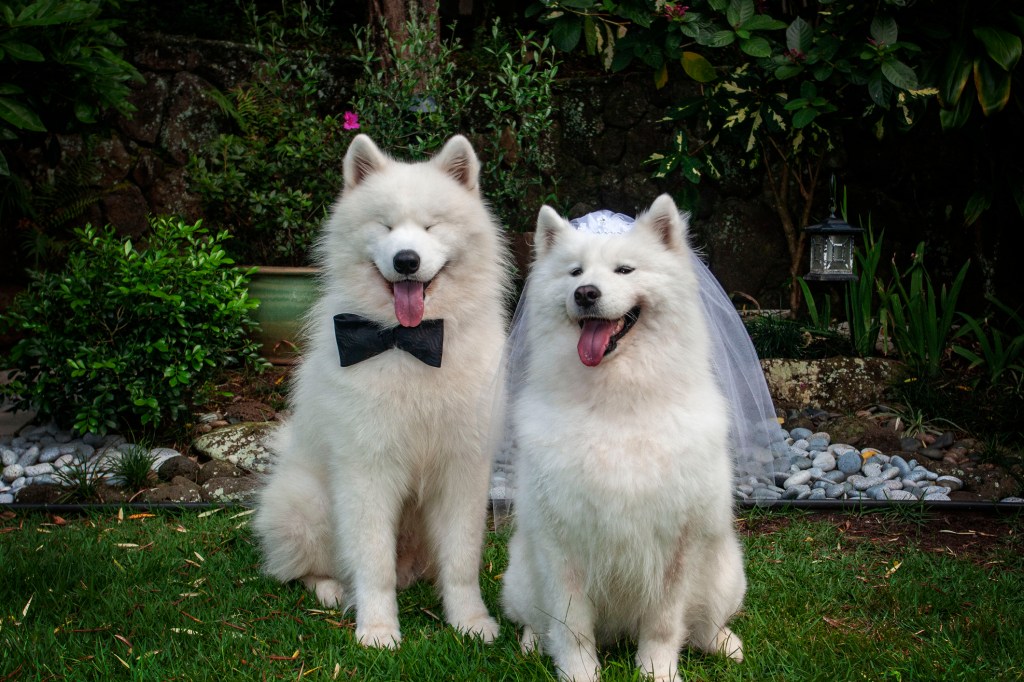
Just because dogs don’t have a word for “love” doesn’t mean they don’t feel it. When defining how dogs feel love, we have to consider what they demonstrate with their behavior.
“If you define love as a long-term commitment then, of course, non-human animals love each other.”
As animal expert Marc Bekoff explains in an interview with Vice, “If you define love as a long-term commitment—meaning they seek one another out when they’re apart, they’re happy when they’re reunited, they protect one another, they feed one another, they raise their children together—then, of course, non-human animals love each other.” In other words, social bonding and devotion are the behavioral “evidence” of love. If your dog chooses to spend time with you, it’s not just because you feed them. They really do care!
There’s also more brain-based evidence to show that dogs experience love. In another interview with the New York Times, Dr. Berns describes an experiment where his team gave dogs both treats and praise: they got bites of tasty hot dogs some of the time, and verbal praise some of the time. When they compared their responses, looking at the reward center of their brains, “the vast number of dogs responded to praise and food equally.”
In other words, dogs love humans at least as much as they love food. And a significant number of them were even more excited about people than hot dogs!
Can dogs fall in love?
So we know dogs experience emotions, and depending on the definition, they seem to demonstrate love. But can dogs “fall in love” in the way of romantic movies?
Well, sort of. Dogs don’t share our notion of romantic love. But as discussed, they do demonstrate love-supporting behaviors of passion and devotion. In addition, dogs share one of our strongest scientific indicators of “falling in love”: oxytocin, aka “the love hormone.” Many studies, including this 2014 study from the University of Tokyo, have found that dogs’ brains release oxytocin during positive interactions with human and dog partners.
Oxytocin plays an important role in social bonding for humans and dogs alike, forming and cementing bonds between parents and children, friends, and yes, romantic love interests. Your dog may not fantasize about a romantic dinner date or walking down the aisle, but they can form intense, lasting bonds to other animals. If your dog has a “best friend” at the dog park, or curls up on the couch with your cat, it’s safe to say they’re in love!
How to tell if your dog is in love
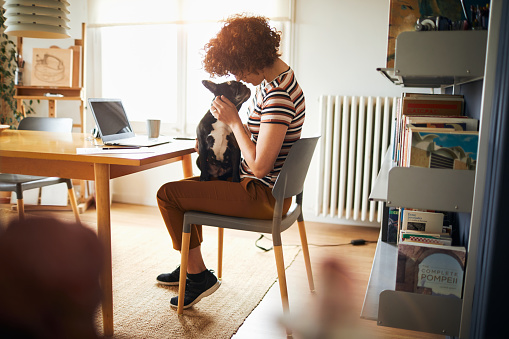
These are some signs that your dog feels love for you:
- Makes meaningful eye contact
- Gets excited when you come home
- Wants to be with you during the day
- Yawns with you
For more detailed information on how your dog shows love, click here.
For many of us (myself included), our dogs’ reaction to us when we get home from work or give them a treat makes us feel like they love us, even if they can’t say the words. And experts like Dr. Berns agree that it’s okay to just call it love: “I would call it that, yes. We call it that in humans.”
Content written by Elisabeth Geier. Elisabeth Geier is a professional writer, teacher, and rescue dog advocate with extensive dog handling experience. She has two beloved pit bulls of her own.
This post is brought to you in partnership with Rover. Founded in 2011 with headquarters based in Seattle, WA, Rover is the nation’s largest network of 5-star pet sitters and dog walkers.
